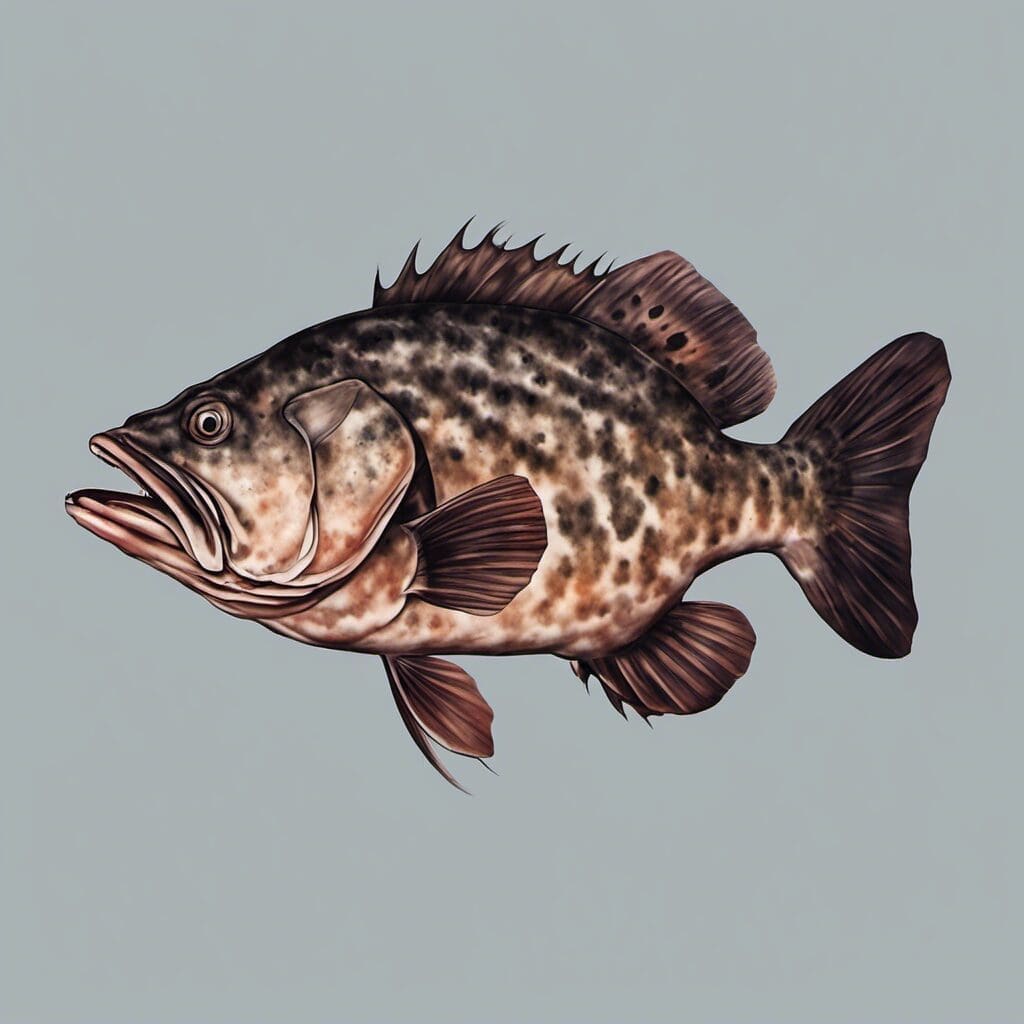Introduction
The Dusky Grouper (Epinephelus marginatus) is a marine fish species that belongs to the Serranidae family.
Conservation Status
The Dusky Grouper is currently identified as Near Threatened. Conservation efforts are being made to protect their habitats and control fishing activities to ensure the overall sustainable population of the species.
Statistics
| Statistic | Average | Range |
|---|---|---|
| Length | 50 cm | 20-130 cm |
| Weight | 15 kg | 3-60 kg |
| Average Lifespan | 50 years |
Distribution
Dusky Groupers are commonly found in the Mediterranean Sea. They also take up residence in the eastern Atlantic, from Portugal to Senegal and in the Canary and Cape Verde islands. They do not exhibit noticeable migration patterns and tend to stay within their chosen reefs and rocky areas.
Habitats
These fish prefer marine water environments and are often found in rocky areas and reefs at a depth range of 5 to 200 meters. They can survive in temperatures of 15-24 degrees Celsius.
When and Where to See
The Dusky Grouper is a non-migratory fish, making it possible to spot them throughout the year in their favored habitats. They are more active during the daytime.
Best Fishing Locations
Dusky Groupers can be found in various locations including:
- Mediterranean Sea
- Portugal coast
- Canary Islands
- Azores Island
- Senegal coast
- Madeira Islands
- Cape Verde Islands
Scuba diving and snorkeling are often employed to spot these fish due to their preference for depth, and rocky and reef areas.
How to Catch
The Dusky Grouper usually bites on bait such as octopus and small fishes. The best technique for bait fishing is bottom fishing. Anglers should focus on fishing during the daytime as these fish are more active during this time.
Identification Guide
The Dusky Grouper has a bulky, robust body of brown or grey color. It has a large mouth with prominent lower canines and rounded tail. The most obvious sign of a Dusky Grouper is the presence of an irregular white margin on the caudal fin.
Culinary Information
The Dusky Grouper is prized for its firm textured, white flesh and subtle flavor. The fish is usually grilled, baked or used in stews. Nutritional information indicates it is a good source of protein and contains valuable vitamins and minerals.
Additional Information
The Dusky Grouper is a solitary and territorial fish. They feed primarily on crustaceans and cephalopods. They mate through a complex ritual involving color changes and presentation of the flared gill cover. Threats include overfishing and habitat degradation.
References and Further Reading
- Fishbase. [Epinephelus marginatus](https://www.fishbase.se/summary/57)
- IUCN. [Epinephelus marginatus] (insert link here)
- Seafood Watch. [Grouper](https://www.seafoodwatch.org/)
Please note that the links provided open in new tabs

